Movies
Interview: ‘Faking a Murderer’ Duo on Their Unreal True Crime Story

In Faking a Murderer, filmmaking duo Adam Rodness and Stu Stone have done something truly impressive. With their humble “unreal true crime story”, they created an entertaining film that plays with not only the audience’s sense of reality, but the cast and crew’s as well.
Directed by Stone and co-written by Rodness and Stone, Faking a Murderer follows the two filmmakers on their noble yet perhaps misguided quest to track down a seedy-looking stranger they’ve discovered online who — in a disturbing video — seemingly confesses to a murder. Or at least that’s what they think. Seeing the popularity of true crime shows, they decide to try and turn this discovery into their own killer hit.
But things aren’t always as they seem, and in this particular case, Faking a Murderer has a lot more going on behind the scenes than even the cast and crew knew about. I sat down with the hilarious filmmaking duo (and brothers-in-law), Rodness and Stone, to discuss the film and the creative (and covert) gymnastics they had to perform to make it all work.
(For more on Faking a Murderer, you can read my full review here)
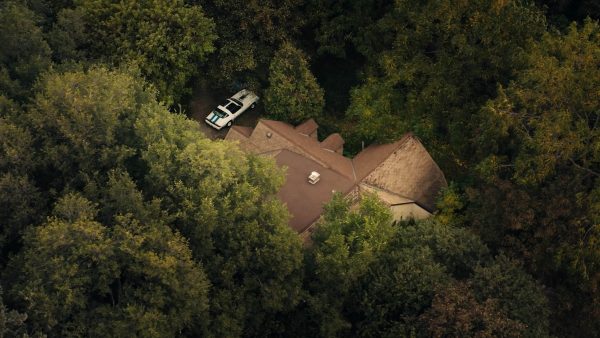
Faking a Murderer
Kelly McNeely: With Faking a Murderer, you guys have kind of created this subgenre of meta-mockumentary true crime comedy, which is kind of perfect for the story you’re telling.
Stu Stone: When you think about a mockumentary it’s like… we’ve been staying away from that word only because when you’re watching a mockumentary, everyone in that mockumentary knows they’re in a mockumentary, and they’re all acting and such. And that’s not what’s going on here. There’s so much real happening. You know, there’s 55 people that appear in the movie, only five of them kind of know what’s going on. Everybody else is 100% buying everything we’re selling. We’ve been calling it an “Unreal True Crime Story”.
Adam Rodness: Let her ask the questions!
Kelly McNeely: I was going to ask about that actually, so this segues perfectly into my question. When you’re pitching to Breakthrough Entertainment, how much of that is real and how much is staged?
Stu Stone: 100% real
Adam Rodness: The whole thing’s real. In fact, like, everything we do in the movie is really one take, because all you get is that one take. You can see — like we say in the movie, we have a tight budget — but in real life, we have a tight budget. There’s no bigger budget to make this little movie come to life. So everything had to be real and authentic, because that’s how we were pushing the storyline forward with these real people, kind of using our Jedi mind tricks and mentalism to get them to tell us what we want to hear.
Stu Stone: There’s five actors in Faking a Murderer, right? Out of those five actors, only two of them knew what was going on. So like, even the other three guys that were sort of in on it, they had no idea what happens leading up to them, what happens after them, they didn’t interact with each other, they have no fucking clue what’s going on. So everybody’s just in the dark, which makes for a very challenging process, because we’re having these creative conversations and we have to be very covert. We almost have to argue in, like, Pig Latin. I mean, we had code words that we would say when we were arguing that are nonsensical to other people, but we knew we were arguing.
Adam Rodness: But to answer your question, the scene at Breakthrough was all real.
Stu Stone: 100% real.
Adam Rodness: What we had to do was we primed one executive to be like, listen, we’re gonna come in and pitch for this movie, and we want to film it. We’re gonna bring in a couple cameras, but they don’t know anything, like whatever you know, you think you know, but you don’t even know. So when we go in there, the president of the company at the time thought that we were just pitching another one of our ideas. And everything you see from them in the room is purely authentic.
Stu Stone: Plus, they were kind of used to us being like… we’re just out there. You know, like, we would just show up with cameras. It wouldn’t be weird for us to show up with cameras. We shot our Jack of all Trades documentary, which Breakthrough also worked on, so they’re used to seeing us filming shit.
Adam Rodness: It was like, “God just more shit from Adam and Stu!”
Stu Stone: And our family too. Like they were all involved in the Jack of all Trades movie. So they were just primed, they knew like oh, this is something that Stu and Adam do, they make movies
Adam Rodness: And it’s normal, the cameras shouldn’t actually scare anybody who knows us.
Stu Stone: They actually didn’t know, and the family pitch is an interesting one, because they didn’t know we were rolling camera. Before we started this pitch, we were like, okay, before we roll the camera, we want to tell you what’s going on, just so you guys know. And then we started the pitch. And so they didn’t realize that we were filming that whole thing. And then when we were done the pitch they’re like okay, let’s film and we’re like, no, we got it.
Adam Rodness: You have to. [how people react to cameras] It’s like a red light syndrome. Like that red light comes on and people put it on. And we want real, we want authenticity, we need to sell this like it’s a documentary.
Stu Stone: The worst thing you could do is have someone who’s not an actor, and have them act. You can see right through that, it’s awful. And even good actors suck most of the time, acting isn’t easy to make it look real. And that’s why a lot of successful movies, popcorn movies, everyone’s over the top because it doesn’t have to be real.
Adam Rodness: But so that’s why we’re like, how can we pull off that we can be adequate actors and not have to reach too far? So we were like, oh, we’ll just be ourselves.
Stu Stone: And so use the people around us to drive the plot, like, we can’t afford people. So we’ll just use the people we have around us. And you know, getting real reactions from them is what makes Faking a Murderer kind of what it is. I mean, you get to this certain moment in the movie where sort of things become more clear, what’s been happening this whole time. But the people who were in the movie have no idea what’s happening. The girl who was our assistant, her name’s Mikayla. She fucking probably hates us. Like, that was real! To her credit. She really at three o’clock in the morning, in the middle of the woods, thinking there’s a killer in the house, went to the thing to open the trunk, she really did that. And if you don’t see this in the movie, because the movie’s 85 minutes, you know, you gotta cut shit out. But we shot like 100 hours a lot with Mikayla that didn’t get in. But we primed her.
So like we would bring her around at two o’clock in the morning on wild goose chases just so she could get used to being out at two o’clock. It’s, you know, normal to put on shoulder pads, because that’s just what we’ve been doing for three weeks with her. So by the time she was there to come and look for the body… You can only do that one time. We can’t go, okay Mikayla, that was all fake. Do it again. She won’t do it again!
Adam Rodness: It wouldn’t work!
Stu Stone: So it’s like, we have to sort of have a game plan. It’s like a Choose Your Own Adventure book. What if she picks this chapter? You know, we’ve gotta be ready for whatever she does. And all we know is that a gun has to come out at some point and bring us into the house. Is she going to be with us? If she decided to not run away. Imagine she came into the house. She’d be in the rest of the movie, because that’s what happened, she came into the house. Right? So we have to have a game plan if she comes in or if she doesn’t come in.
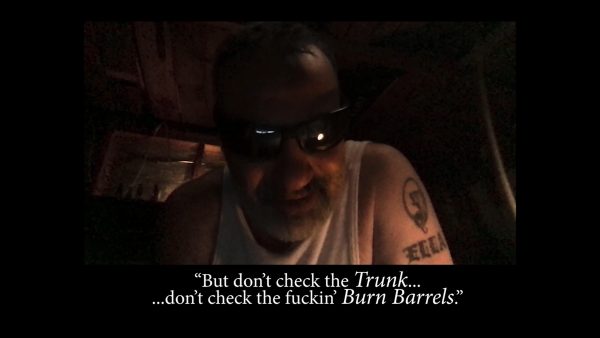
Faking a Murderer
Kelly McNeely: So for you guys, you’re brothers-in-law. So how did this filmmaking relationship develop from that? Or did that come first?
Adam Rodness: I mean, Stu is still a little bit older than me, as you can tell by his skin.
Stu Stone: What?!
Adam Rodness: I moisturize, he doesn’t.
Stu Stone: That is ridiculous.
Adam Rodness: Why?
Stu Stone: You moisturize?
Adam Rodness: Every day. You gotta keep up.
Stu Stone: This is new to me.
Adam Rodness: I keep my skin looking young and supple.
Stu Stone: He drinks the blood of children.
Adam Rodness: Stu was actually living in Los Angeles, and he came in for a visit to Toronto —
Stu Stone: Well before that you were working with us.
Adam Rodness: This is before that.
Stu Stone: Oh we’re going way back. Origin story?
Adam Rodness: Yeah, origin story.
Stu Stone: I don’t think she asked that.
Adam Rodness: But it kind of leads into it. It’s the Coles notes.
Stu Stone: Cliffs.
Adam Rodness: Or Cliffs notes, as the Canadian way of saying it. But anyways, I went out to LA, and he took me under his wing and showed me around —
Stu Stone: What a wing it was.
Adam Rodness: And I spent all my money. I did a Burger King commercial. And I made like so much cash, or what I thought was a lot of cash. It was 8 grand. So I moved from Toronto to LA, and was like, I made it! I’m out there. Stu was like, come with me! We’ll make you a star, kid! I’m like, yeah! And we go out there and the 8 grand was gone, like, in two weeks. So I come back home to my parents.
Stu Stone: But! During that time, I was working with Jamie Kennedy on a show that was very hybrid. It was called Blowing Up. We were, like, trying to be rappers, and we were shooting it and he was there for all that kind of stuff, sort of when that style came out.
Adam Rodness: I actually was the assistant on the show in 2006. And started like, and had those jobs like, you know, shopping coffee around to Jamie Kennedy and Stu —
Stu Stone: And how does Jamie take his coffee?
Adam Rodness: Black. And I was just kind of young, I was like 20 —
Stu Stone: To Adam’s credit — and I will give him credit — he is the ultimate hustler. So like he hustled his way to get that job. And yeah, he may have been getting coffee, but really, he was like networking with every fucking person, like all the MTV execs knew Adam. He just knew how to play the game.
Adam Rodness: So I learned to play the game. I came home to Toronto, and I started doing work here. And then I was starting to cold call companies. We made up a production company which at the time was called That’s My Sister productions. That’s because I ended up, you know, dating his sister behind his back.
Stu Stone: That’s actually so fucked. So imagine that. Me and him were friends in Los Angeles. I had a TV show on MTV at that time, okay, life was pretty fucking hectic at that point. And he was there, and we were having fun. This guy goes back to Toronto and dates my sister and doesn’t tell me. And he thinks I’m just gonna be like…. Awesome! That’s a great idea!
Adam Rodness: I’m like, can you imagine like, 15-20 years later, you and I are working, and Kelly’s interviewing us —
Stu Stone: Whatever he manifested in life, like came true. Because here we are.
Adam Rodness: But seriously, we ended up having the same creative mind and path. And we’re like, let’s make a company. I started cold calling companies. We ended up getting a meeting with Breakthrough, and we just charmed the pants off them. They were like, hey, you guys produce and direct? Yeah, sure! You can write? Like, oh yeah!
Stu Stone: They were like, you guys know, these Black Fawn guys?
Adam Rodness: And we’re like, yeah! So they’re like, we’re doing movies with them, but we want more, so how about we start doing them with you? And we’re like… yeah!!
Stu Stone: I’ve got to give Black Fawn a little bit of a shout out here. Okay. Because they were doing these low budget, micro budget horror movies with Breakthrough. And that’s how we got in the door, because Black Fawn was doing so great and they wanted more.
Adam Rodness: I just said that.
Stu Stone: No, of course, but once we found out the budget that Black Fawn was doing the movies on… The first time I met [director/producer Chad Archibald], I was like, Chad, I love what you do. But one thing… why didn’t you just ask for more money the first time?! Because now they just think that this is how you make a movie. Like, this is not normal! And he’s like, no, it’s fine. And I’m like, oh my god. It was really hard. It’s hard to make movies look good for what they are. And as a result, we learned how to make a movie on the fly.
Adam Rodness: I think it was a good exercise, too.
Stu Stone: It was awesome.
Adam Rodness: So then that’s how it started. And we just were like, alright, we’ll do two movies with you guys. And the first one was our first title called The Haunted House on Kirby Road, which is a stoner horror movie. Yeah, really fun, based on a true story, haunted house film. And then the —
Stu Stone: Segue. So after they watched that movie, they were like, it looks really good, but it’s too funny. We need a horror movie. And I was like, well, it’s hard. I mean, it’s a ghost story, there’s no bad guy, it’s invisible ghosts, you know? They’re like, well come up with a bad guy. So that’s when we did Scarecrows, we came up with a farmer, that if you trespass on his cornfield you’re fucked.
Adam Rodness: Yeah, well, he turns teenagers into living scarecrows that die of starvation on his farm land. That was the pitch. And they’re like, I love it!
Stu Stone: Yeah, so we did that one. And we knew that that one had to be a little bit more scary, but still, like it’s 70 pages of comedy before the first piece of blood drops. But they watched that one, and we managed to convince them that that one was a horror, they were like, this is perfect. They loved it. So then we threw the Jack of all Trades movie at them, which is a documentary. So that movie took us four years — five years — and it’s a very complex movie conversation for another time. But it’s like a really fucking crazy movie, Jack of all Trades, and it was a documentary. And we were so in that mode — we were a well tuned machine doing that for four years — that this idea sort of came to us.
This was also like five years ago we’re talking about, true crime was exploding onto the scene. You know, The Jinx, The Staircase, Making a Murderer, Evil Genius… all of these shows, and even Dateline should get credit, because Keith Morrison’s voice, I would love just to hear him just read the phonebook.
Adam Rodness: But they were too good. And we’re like, this is too well produced. It’s so captivating, someone has to be controlling this narrative. So it was that at that point we’re like, let’s make up our own, and create our own version of this. It’s kind of like a social experiment where it’s like, how perceived the audiences are over television, and how they can influence your minds. And can we create a fictitious killer and use real people to push the storyline forward? A la the Borat of true crime.
Stu Stone: I was watching Catfish. And like, I had already gotten through The Jinx and all those things. And so I’m already like, I want true crime and I’ve run out of shit. And I thought, Catfish is the greatest! So I watched Catfish. And there’s a scene in Catfish where he shows up at a barn at like two o’clock in the morning. And it’s not a scary scene or anything like that. But I watched that scene, and it stuck out to me that I was like, holy fuck, this could be so scary. And we just were shooting a documentary, and so we were like, let’s do a horror movie and shoot it the way we just did Jack of all Trades, and we’ll just… everyone will just think it’s real! And so that’s sort of how this crazy story came to life.
We even went so far as to like, make YouTube videos. David Stoner has a YouTube channel called Bait and Tackle Mondays. We really made the YouTube channel and he really made the videos. When we went to the pitch meetings, we stumbled to pull up the shit.
Adam Rodness: It really was a song, and it really was a dance. But yeah, that’s basically the gist of it in a long fashioned way. But this particular film is paying homage to the true crime genre.
Stu Stone: And that subgenre is so ripe for the picking, you know, like, everything you watch is so great. It’s like a perfect time to sneak a satire in there. It’s more of a satire than anything else. It’s just that we love that genre. So here’s our entry, you know. And when we pitch to Breakthrough and they already know us, and our whole pitch is like, oh Adam and Stu are gonna go find a killer. And they’re like… ok!
Adam Rodness: Sure!
Stu Stone: You know, I’d watch that.
Adam Rodness: Or it’s like… What? Can you do that? And we’re like, we’ll find out! It’s funny, because no one ever really said, don’t! No no no! Like, you’re not —
Stu Stone: That’s so funny, that’s true.
Adam Rodness: — You’re really not going to do it. Everyone’s like, yeah, yeah, go ahead!
Stu Stone: Make sure you film it!
Adam Rodness: And show us how it ends. Now that I think about it, they really didn’t think about us at all.
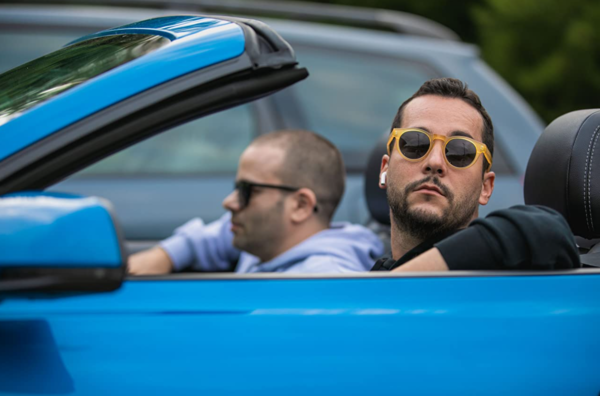
Adam Rodness & Stu Stone – Faking a Murderer
Kelly McNeely: No one was concerned for your safety at all! Now, obviously true crime shows were a big point of inspiration, did you guys have any other conceptual influences when making Faking a Murderer?
Stu Stone: Yeah, I definitely would like to say that Catfish scene jumps out at me, but also like Borat. The first one, when you first saw that you really didn’t know what you were getting into, right? There’s all the real shit, and then there’s like the stuff that brings the story along, right? It’s like, the way he kind of did that so brilliantly in that movie. Obviously, Borat is a character. So people who were watching the movie are in on the joke from the beginning. So they’re watching Borat and they know that Borat is fucking with people. So we’re not Borat, and we’re not playing a character, we are ourselves. So that’s what makes us different from Borat, but I’d say he laid the groundwork of telling the story in that sort of linear way of like, using real people to drive the plot along. But again, we did it without being a character, so to speak.
Adam Rodness: And at the same time too, don’t forget, we are as a movie physically producing, directing, creating, really making a movie, we’re really doing it at the same time as we’re doing it in front of the camera, doing this other, you know, pushing the the actual narrative of the story forward. So it’s a tall task, and you have 15 shoot days to get it done, because you only afford the cameras for so long, and you have all these other factors that come into play and trying to keep the magic real, which was Stu and I just keeping in our own character, not letting the cat out of the bag, that this is, you know, not what it seems to be.
Stu Stone: Like, we would come home from one shoot portion of the movie where like, I’m literally like, covered in blood. Right? And then we would go, we went to go eat after that. And so like, I went into the restaurant, like totally, just like, I have blood all over, but I forget that I have blood on me because I’m just like, okay, so what are we doing next? Oh, we’re gonna go eat. All right. And so we go to the restaurant and I walk in, and the lady was like, calling an ambulance. I forgot that I was bleeding. You know. And we got pulled over by the cops! And I’m covered in blood, we got pulled over by the cops with a fake plate on the back, and a body in the trunk!
Adam Rodness: Hold on, hold on. Jeez.
Stu Stone: I forgot about that!
Adam Rodness: We rented this blue Mustang that you see in the movie for our car. Like, that’s the car my character brings to —
Stu Stone: “Your character”, huh?
Adam Rodness: My character.
Stu Stone: Adam made sure he got that car, but go ahead.
Adam Rodness: Long story short, we’re doing a driving scene and we had to use fake plates because we couldn’t use the rental car plates. So we put the fake plates on, and then — this was when we were going to pick up Mikayla to do this whole crazy stuff. This was like the crux of the movie. Like if we could pull this off, we got something crazy. On the way to pick her up, we got pulled over here. And it’s like three in the morning. The cop pulls us over. He’s like, what do you guys do?
Stu Stone: I have blood all over me.
Adam Rodness: And I’m we’re mic’d. There’s like a knife under the seat, and we pop the trunk, which is full of, like, audio equipment. And he’s like, what do you guys do? Let me see your registration. I’m like, yeah, here’s a letter. He’s like… a murderer… murdering… faking.. you guys, what?! Oh, no, no, we’re just, we’re doing something for — and we’re literally late to go pick up Mikayla —
Stu Stone: We’re like, oh it’s just a YouTube video, we’re just having fun.
Adam Rodness: And the guy’s like, this is a huge felony that you guys have done. You cannot cover up your plates.
Stu Stone: And like, by the way, we had this code word — not to interrupt, but I always interrupt him — but not to interrupt this particular time —
Adam Rodness: Which you just did.
Stu Stone: We had a code word with the camera guy, if we were ever like, “blah blah blah, pineapple juice”. He knows that means roll. Because a lot of the time to get real reactions from people they shouldn’t know you’re rolling camera. The camera guy, he’s with us in the back of the car and all this is getting caught on camera. So the cop, he’s in the movie but obviously that didn’t make the final cut. He ended up letting us go, but he must have thought he’d caught two killers.
Adam Rodness: For a second, then he found out that he just caught two idiots who didn’t realize what they were doing. And then we went to pick up Mikayla and do the stunt. We were so high on adrenaline, it was just crazy.
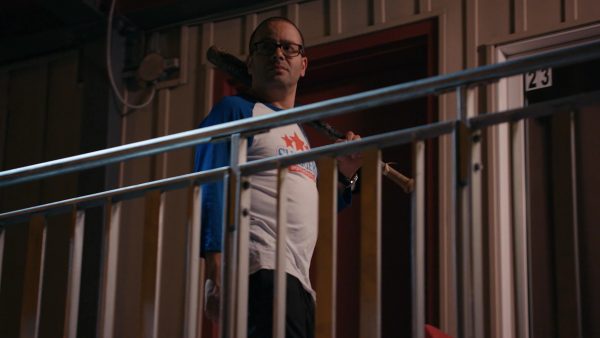
Stu Stone – Faking a Murderer
Kelly McNeely: Was there ever a moment that you like, almost lost it? Like you almost let it slip?
Stu Stone: Yeah, yeah. 100 times.
Adam Rodness: Well, I mean, we would get in real heated arguments in front of the crew.
Stu Stone: And the crew had no idea either, so it’s like they’re confused.
Adam Rodness: Like, is this part of the movie? Or is this a real genuine argument? Because our creative is like… we mesh, but when we have a difference of opinion, we go at it and it doesn’t matter where we are. And we will voice our opinions —
Stu Stone: Well, he will…
Adam Rodness: — to find the right path, which is usually my path because it’s usually the right path —
Stu Stone: That’s not true either.
Adam Rodness: And you know, I think that that actually puts out for a good creative team, because you know, I cover more of his weaknesses than he has strengths.
Stu Stone: Well he has been working out on his Peloton, so that’s how he covers for my weakness.
Adam Rodness: If there’s anything that I do well right now, it’s Pelotoning.
Stu Stone: He eats clean, very clean.
Adam Rodness: It’s incredible. It’s a lifestyle.
Stu Stone: We do fight in real life, we are brothers in law, there is a chip on my shoulder that he married my sister that never will go away. And we do have creative differences. And you know, it’s part of it. And it’s part of working with us. But like, when you watch a scene in the movie, and you’re seeing us go — there’s a scene in Faking a Murderer where the guy sends us to where the lurkers hang out, right? And so we go into this abandoned house in the middle of a field. It’s the scariest fucking house, right? You see us go look at the house. But what you don’t see is there’s a caravan of crew behind us that are also with us, that think that there could be a killer there. We fucked with everybody, top to bottom.
Adam Rodness: And they’re also expecting like crazy shit to jump out at them, because they know that they’re with us and they know that we’re going to fuck with them the entire time as well. But that was part of the plan. People who thought that they were in, were not really in. There were people that thought they knew, that were like, oh yeah Adam and Stu we’re in this together yeah, but they don’t know shit. That was the whole point. Reel ‘em in real tight so they trust us.
Stu Stone: My sister would call, when we were at that motel, which we really slept in — that fucking semen covered motel, we really did sleep there, it was awful. But my sister’s like blowing up [Adam’s] phone like, you need to come home, what the fuck are you doing? You know, we were like pineapple juice! Like, any time that we could get into a fight with our family? Roll camera. That’s the kind of production this was.
I hope it came through. I mean, I tell people this, but there’s like this polarizing moment in Faking a Murderer where as an audience member — like I said, it’s not like watching Borat, right? The audience is in on the joke. In this movie, the audience is not necessarily in on the joke unless you listen to us on some podcasts and we blew the whole fucking thing. But if you’re not in on it, they’re gonna watch it and most people will believe what they’re watching is real. Which it is. Why do they think it’s real? Because it is real. There’s like a nice poly-blend of real that’s in there that people are watching. So then it gets to this moment in the film — which is very polarizing, and it’s a moment different for everybody else. I’m curious to hear when it happened for you, if it happened for you. But for the most part, it’s like the twist in the movie where we decide to do the thing. I’m going to go with the thing and we’re going to do the thing. And they’re like, wait a minute.
That moment is very polarizing, because someone’s come along for the ride if they made it that far, right? And so they get to that point, and they’re either like, oh my god, this is genius. Like these guys fucked with me, but I can’t wait to see what’s gonna happen. Or they’re like, fuck, Stu, you piece of shit. You just fucking bullshitted me. But they’ll still watch to the end either way, but it’s like either they’re mad at us or they think it’s genius.
Adam Rodness: I think that’s the real takeaway from Faking a Murderer, is it’s a multi-watch movie, because you can watch this movie once for what it is. And then you start to understand, okay, some things are fake. Some things are real. What is fake, who is in on it and who’s not. And you can watch it two or three different times and pick it apart, and have fun with it.
Stu Stone: But we also left breadcrumbs. Like when you watch it, if you do watch it again. I mean, but there’s breadcrumbs that tell the story along the whole way. Like once you know what’s going on. We hid shit in the scenes and there’s like, it’s all spelled out.
Adam Rodness: And then we went as far as to like, the rolling paper guy is real. He actually made us our own Faking a Murderer rolling papers.
Stu Stone: It’s an independent film, there’s a big independent spirit behind it. This is not a movie that you could make for $30 million. Well you could, but it wouldn’t be the same movie. And the people who worked on our crew did it because they want to, they love making movies. That’s why they’re there. Nobody’s getting rich, everybody’s there because they love to be there. And nobody loves to be there more than we do. That’s why we started this company [5’7Films], so that we can make movies, and it took us three/four times till we actually put ourselves in — you know okay, now we’ll be in one — and this was the one that we decided to do. Hopefully it’s a style that sticks with people and we can do other stuff like this.
Adam Rodness: I think that it’s also a real, like, if there was a water cooler — you know if people were at water cooler —
Stu Stone: A water cooler?
Adam Rodness: Yeah, if people were like gathered around the water cooler, they talk about what they watch.
Stu Stone: Is that what you used to do at the office? Have you ever had a real job where you had a water cooler?
Adam Rodness: Absolutely.
Stu Stone: Where?
Adam Rodness: Every job.
Stu Stone: Which job?
Adam Rodness: I used to work at a Speaker City. It was actually called Electric Avenue, at the Promenade Mall.
Stu Stone: Really? And they had a water cooler at Electric Avenue?
Adam Rodness: Yes. In the back. [Faking a Murderer]’s a conversation piece!
Stu Stone: Cone cup or regular cup?
Adam Rodness: Cone cup all the way. So if people are talking about it, discussing what they thought was authentic, what they thought was not, did they love it, did they hate it, who did they like and why? And if we’re having a conversation about it, that’s the whole point, and if we can entertain and make you laugh, make you jump in your seat, then —
Stu Stone: Is that your Michael Myers poster?
Kelly McNeely: Yeah, it’s a whole John Carpenter poster, there’s The Thing, The Fog, there’s an OBEY in there…
Stu Stone: John Carpenter’s the man. A hero of ours for sure. I’ll say that John Carpenter does all his own music, we’re very hands-on as well. When you make movies, you gotta wear every hat.
Adam Rodness: Yeah, the stuff that you see from us is like, we do it all, every hat that there is. From the music to the editing to everything. It really is us, and it means a lot for us to be able to do this type of stuff.
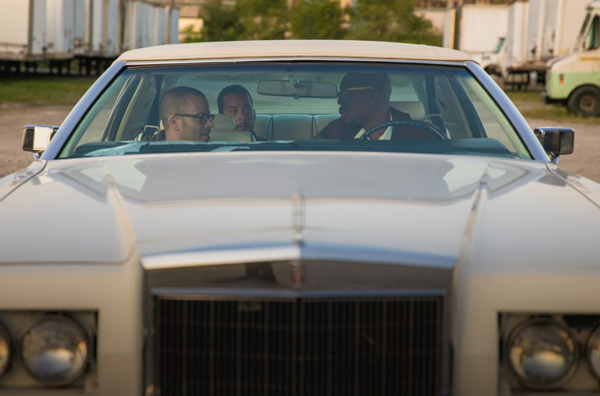
Faking a Murderer
Kelly McNeely: So what’s next for you guys?
Adam Rodness: It’s good thing you asked. We wrote — I think we’re 99% there — on our next movie. It’s called Vandits, it’s a stoner heist movie. The logline is it’s about these four stoner idiots who decide to rob a bingo hall on Christmas Eve.
Stu Stone: Basically, it’s like Ocean’s 11 took place in Fargo. They’re guys that think they’re big time, they’re gonna rob the bingo hall, but it does not go well. The senior citizens that are in there are ready for them.
Kelly McNeely: Like a V.F.W. type of thing going on there.
Adam Rodness: We’re supposed to go to camera in September in Winnipeg.
Stu Stone: And then also we’ve been developing — believe it or not, this is not a joke — we’ve been developing a show called Brothers in Law. And it’s like Adam and I open up a detective agency and take on people’s cases.
Adam Rodness: Like real case that we film on camera.
Stu Stone: Faking a Murderer style, but it’s like a detective show. And we’re just like, we’re documentary filmmakers, that’s what we use to gain access, because everyone wants to be on TV, so we can get interviews and access and solve your crime. So we’ve been working on that, we put together pitch materials, we’re talking to a couple people. But listen, if Faking a Murderer can do well, then maybe that will open up a door for Brothers in Law.
Kelly McNeely: It sounds like a true crime Nathan For You. And I love that.
Adam Rodness: Exactly! That’s exactly it.
Stu Stone: By the way, that’s my favorite fucking show. Oh my god. I did not know about Nathan For You until the quarantine. Someone put me on to it. And I watched the entire series in like two days. He’s a genius. And that’s my bag. That’s my humor. And I think Nathan [Fielder] would like this movie. That’s the quote! “Nathan Fielder would like this movie”. He would appreciate this, because this is what he does. It’s like his same style. He’s the man.
Adam Rodness: Otherwise, we’re developing tons of more of these stoner horrors — that we’re quoting them as — and you know, we got a whole slate of stuff that we’re really excited about. I think the next five years you can see a lot of —
Stu Stone: Growth, or maybe we’ll be 5’8” by the time five years comes.
Adam Rodness: Just keep on stretching with that Peloton.
Stu Stone: But you know it’s been five years since we started this company, we’ve seen some good growth for real, jokes aside. Adam’s Peloton, there’s growth, there’s gains. But there is growth, and, you know, with Jack of all Trades definitely, we learned a lot from that experience, not just from a filmmaking standpoint, but on releasing a film independently standpoint. I mean, that movie was like a little engine that could. Nobody gave it a shot. And when it came out, people like — I mean not you specifically on that film — but people like you who are out there giving the public, you know, giving smaller guys a “hey, look at this”. It works. And people downloaded it, it made noise, Netflix picked it up and our lives changed.
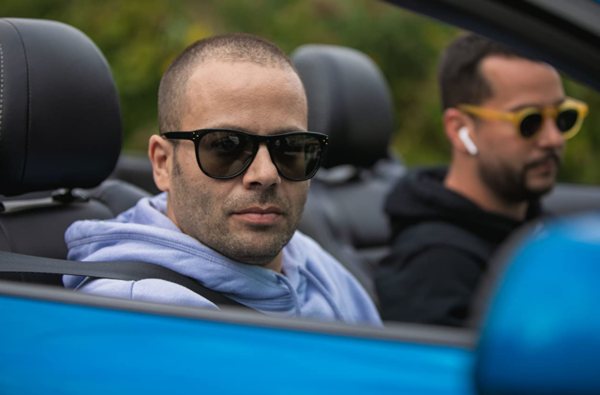
Stu Stone & Adam Rodness – Faking a Murderer
Adam and Stu made sure to give shout outs to their partners on Faking a Murderer: Breakthrough Entertainment, 4Digital Media, Shine House PR, Astrolab Studios, OpenLab, and Red Lab.
You can find Faking a Murderer starting August 6, 2021 on Digital at Amazon, iTunes, Fandango Now, Vudu, Microsoft, Google, and DirecTV. You can find it on VOD at DirecTV, Dish, Cox, Comcast, InDemand, and Charter.
https://www.youtube.com/watch?v=RyFWISDu7no
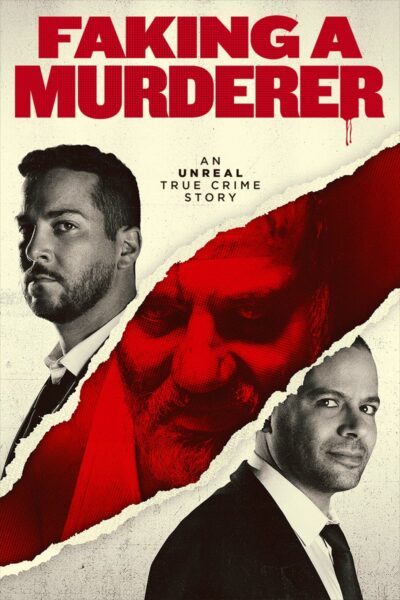
'Civil War' Review: Is It Worth Watching?
Follow our new YouTube channel "Mysteries and Movies" here.

Movies
‘Evil Dead’ Film Franchise Getting TWO New Installments
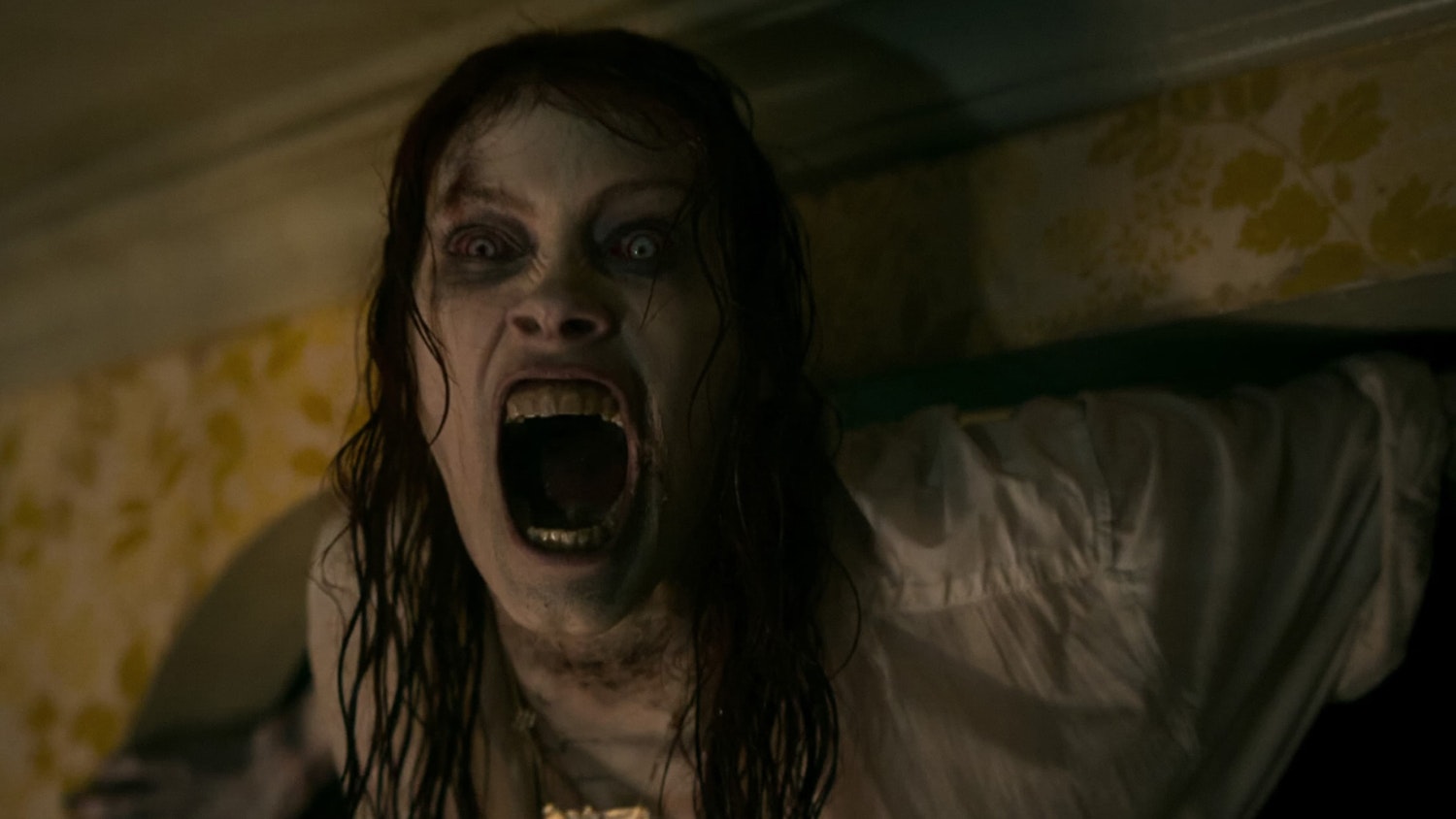
It was a risk for Fede Alvarez to reboot Sam Raimi’s horror classic The Evil Dead in 2013, but that risk paid off and so did its spiritual sequel Evil Dead Rise in 2023. Now Deadline is reporting that the series is getting, not one, but two fresh entries.
We already knew about the Sébastien Vaniček upcoming film that delves into the Deadite universe and should be a proper sequel to the latest film, but we are broadsided that Francis Galluppi and Ghost House Pictures are doing a one-off project set in Raimi’s universe based off of an idea that Galluppi pitched to Raimi himself. That concept is being kept under wraps.
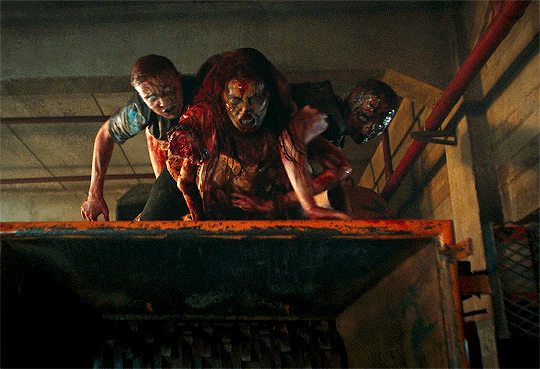
“Francis Galluppi is a storyteller who knows when to keep us waiting in simmering tension and when to hit us with explosive violence,” Raimi told Deadline. “He is a director that shows uncommon control in his feature debut.”
That feature is titled The Last Stop In Yuma County which will release theatrically in the United States on May 4. It follows a traveling salesman, “stranded at a rural Arizona rest stop,” and “is thrust into a dire hostage situation by the arrival of two bank robbers with no qualms about using cruelty-or cold, hard steel-to protect their bloodstained fortune.”
Galluppi is an award-winning sci-fi/horror shorts director whose acclaimed works include High Desert Hell and The Gemini Project. You can view the full edit of High Desert Hell and the teaser for Gemini below:
'Civil War' Review: Is It Worth Watching?
Follow our new YouTube channel "Mysteries and Movies" here.
Movies
Fede Alvarez Teases ‘Alien: Romulus’ With RC Facehugger
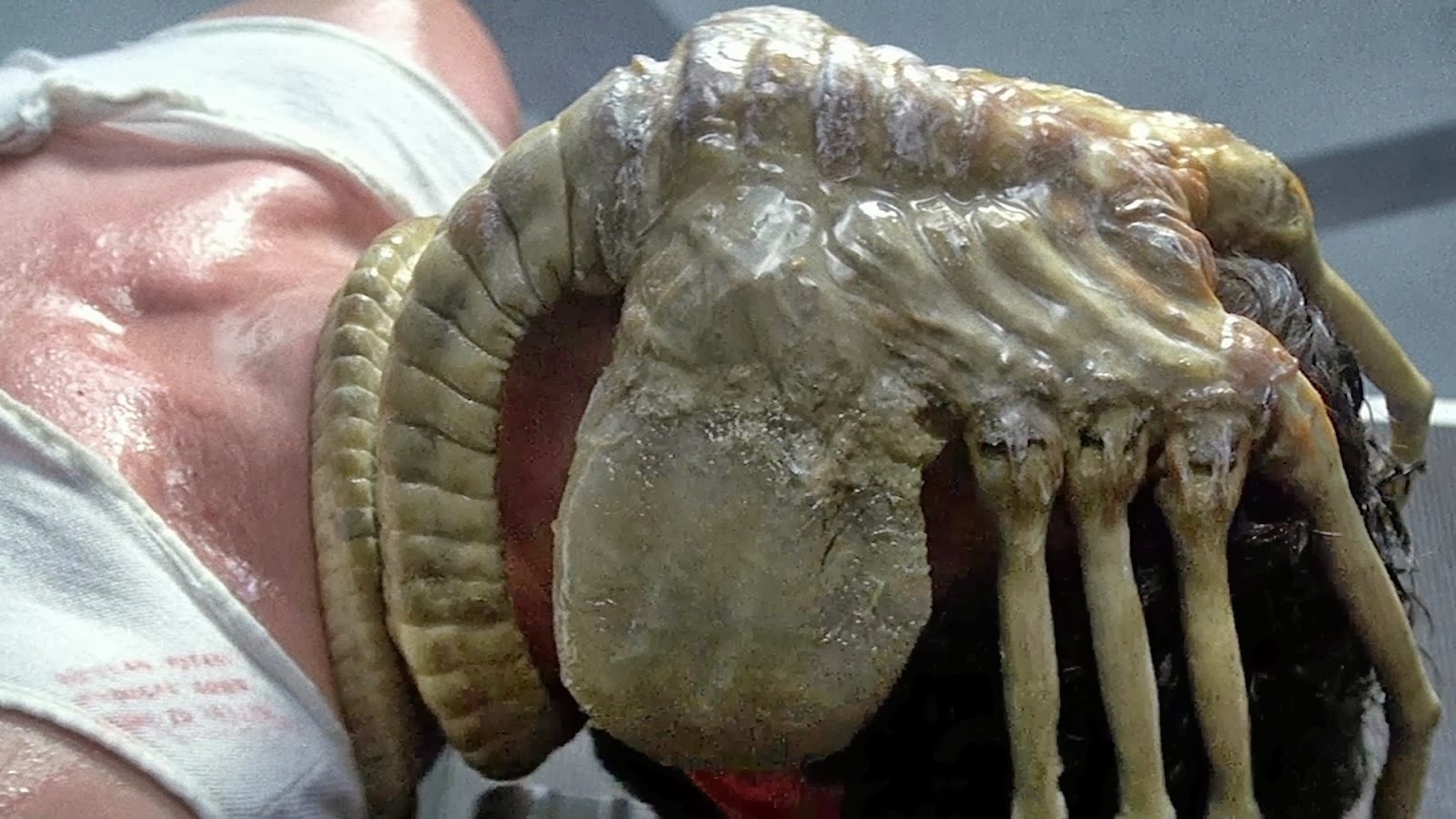
Happy Alien Day! To celebrate director Fede Alvarez who is helming the latest sequel in the Alien franchise Alien: Romulus, got out his toy Facehugger in the SFX workshop. He posted his antics on Instagram with the following message:
“Playing with my favorite toy on set of #AlienRomulus last summer. RC Facehugger created by the amazing team from @wetaworkshop Happy #AlienDay everybody!”
To commemorate the 45th anniversary of Ridley Scott’s original Alien movie, April 26 2024 has been designated as Alien Day, with a re-release of the film hitting theaters for a limited time.
Alien: Romulus is the seventh film in the franchise and is currently in post-production with a scheduled theatrical release date of August 16, 2024.
In other news from the Alien universe, James Cameron has been pitching fans the boxed set of Aliens: Expanded a new documentary film, and a collection of merch associated with the movie with pre-sales ending on May 5.
'Civil War' Review: Is It Worth Watching?
Follow our new YouTube channel "Mysteries and Movies" here.
Movies
‘Invisible Man 2’ Is “Closer Than Its Ever Been” to Happening

Elisabeth Moss in a very well-thought-out statement said in an interview for Happy Sad Confused that even though there have been some logistical issues for doing Invisible Man 2 there is hope on the horizon.
Podcast host Josh Horowitz asked about the follow-up and if Moss and director Leigh Whannell were any closer to cracking a solution to getting it made. “We are closer than we have ever been to cracking it,” said Moss with a huge grin. You can see her reaction at the 35:52 mark in the below video.
Whannell is currently in New Zealand filming another monster movie for Universal, Wolf Man, which might be the spark that ignites Universal’s troubled Dark Universe concept which hasn’t gained any momentum since Tom Cruise’s failed attempt at resurrecting The Mummy.
Also, in the podcast video, Moss says she is not in the Wolf Man film so any speculation that it’s a crossover project is left in the air.
Meanwhile, Universal Studios is in the middle of constructing a year-round haunt house in Las Vegas which will showcase some of their classic cinematic monsters. Depending on attendance, this could be the boost the studio needs to get audiences interested in their creature IPs once more and to get more films made based on them.
The Las Vegas project is set to open in 2025, coinciding with their new proper theme park in Orlando called Epic Universe.
'Civil War' Review: Is It Worth Watching?
Follow our new YouTube channel "Mysteries and Movies" here.
-
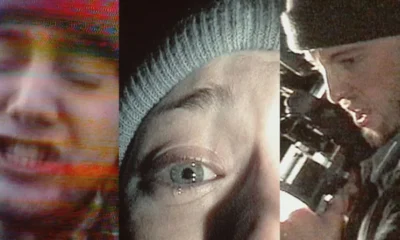
 News5 days ago
News5 days agoOriginal Blair Witch Cast Ask Lionsgate for Retroactive Residuals in Light of New Film
-
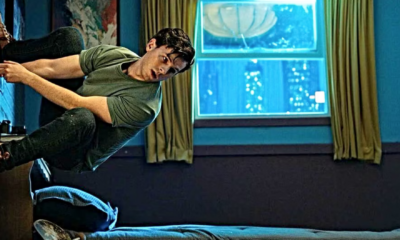
 Movies6 days ago
Movies6 days agoSpider-Man With a Cronenberg Twist in This Fan-Made Short
-
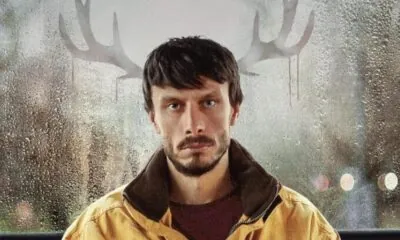
 News3 days ago
News3 days agoPerhaps the Scariest, Most Disturbing Series of The Year
-
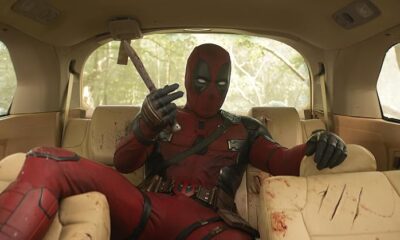
 Movies4 days ago
Movies4 days agoNew F-Bomb Laden ‘Deadpool & Wolverine’ Trailer: Bloody Buddy Movie
-
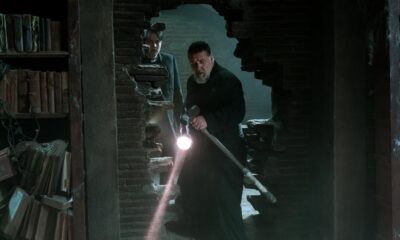
 News4 days ago
News4 days agoRussell Crowe To Star in Another Exorcism Movie & It’s Not a Sequel
-
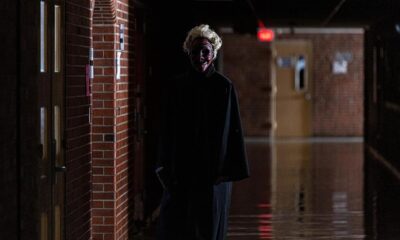
 Movies4 days ago
Movies4 days ago‘Founders Day’ Finally Getting a Digital Release
-

 Lists3 days ago
Lists3 days agoThrills and Chills: Ranking ‘Radio Silence’ Films from Bloody Brilliant to Just Bloody
-
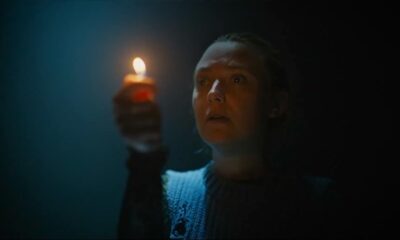
 Movies4 days ago
Movies4 days agoNew ‘The Watchers’ Trailer Adds More to the Mystery
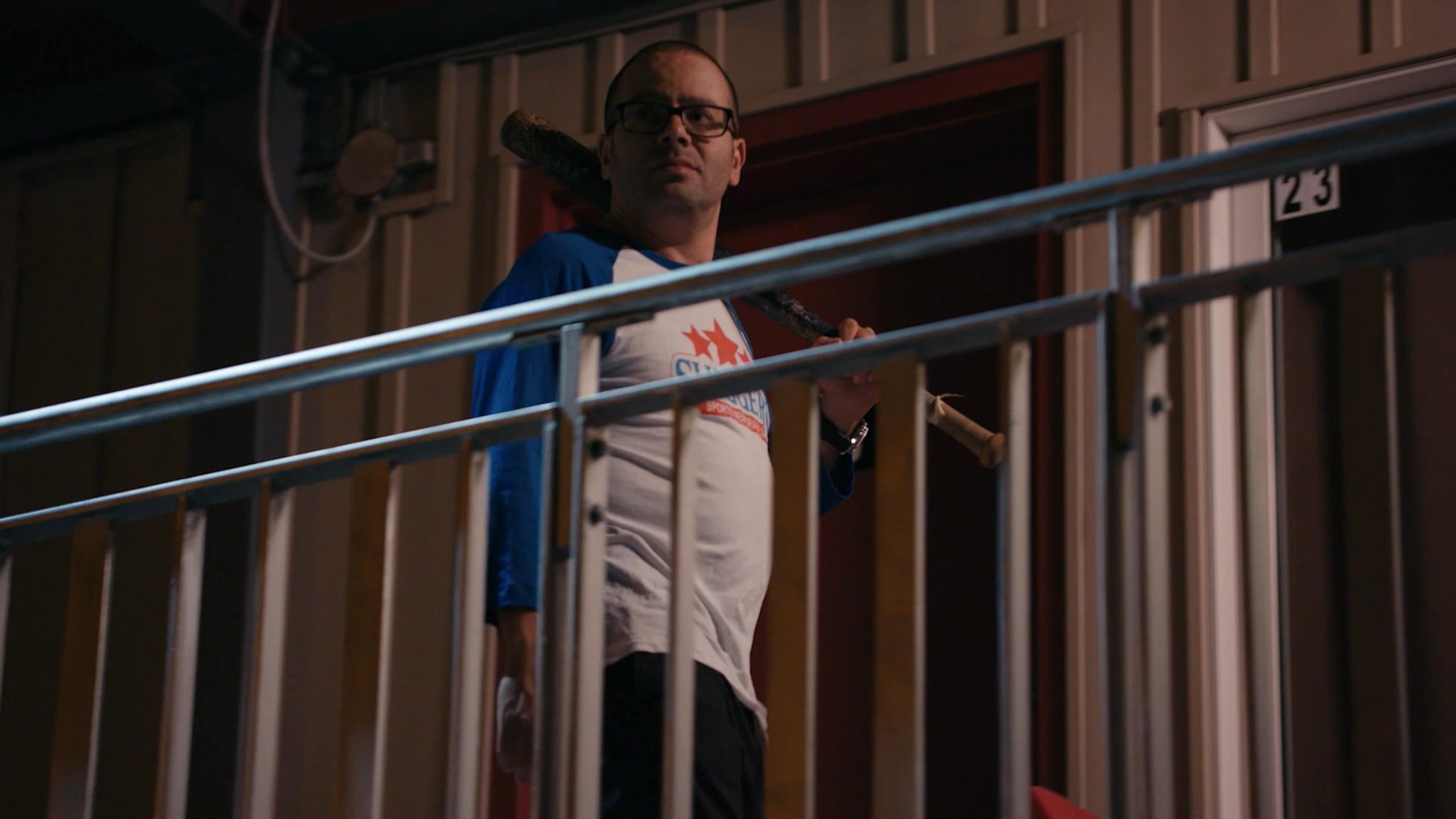
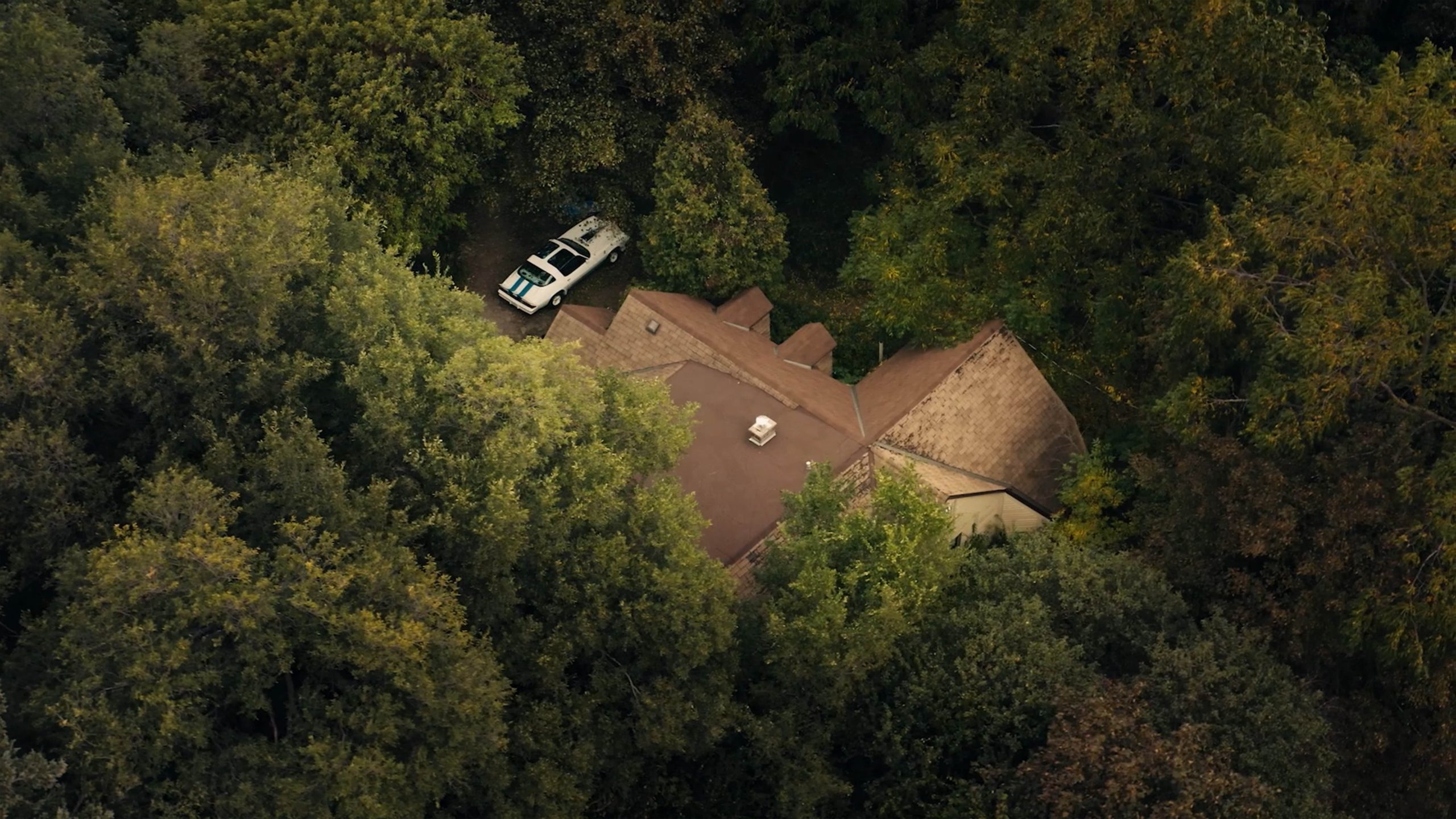























You must be logged in to post a comment Login